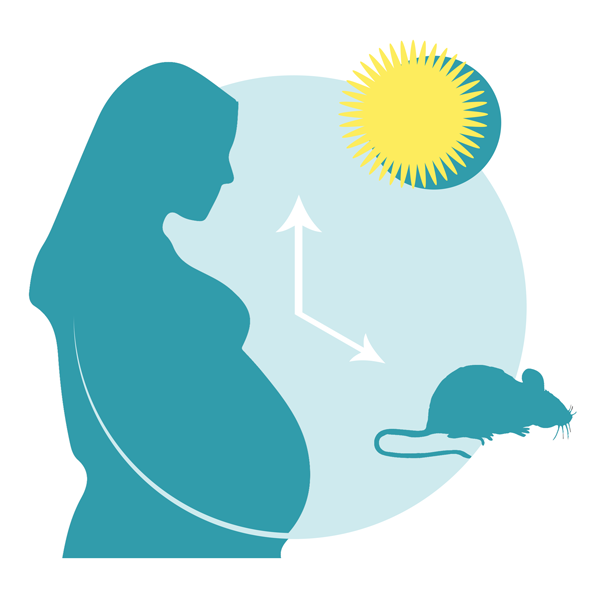Circadian rhythms (e.g., sleep/activity cycles) are endogenous and entrainable adaptations to 24-hour periods of light and dark and are important to normal physiologic functions. Circadian rhythms have wide-ranging influences on metabolism, mood, addictive behaviors, and the immune system, and their phasing defines an individual’s chronotype (i.e., timing of an individual’s circadian rhythms). Recent studies have shown that altering maternal circadian rhythms can disrupt fetal development and induce intrauterine growth restriction. Additionally, mutations of genes regulating the circadian system can dramatically disrupt gestation and delivery. Furthermore, women who perform shift work (and thus have sleep/wake cycles that are out of phase with natural light/dark cycles) are at increased risk of preterm delivery. However, we do not know the mechanisms by which disruption of circadian rhythm, termed “chronodisruption”, affects birth timing.
As part of the Prematurity Research Center, our laboratory is collaborating with others to investigate the role of circadian rhythms in preterm birth. We are currently performing human and mouse studies to address the following questions:

- Do endogenous circadian rhythms change during pregnancy?
- Does disruption in circadian rhythms cause preterm birth?
- How do peripheral oscillators (“clocks”) in reproductive tissues affect the timing of birth?
- Does fetal circadian genotype affect the risk for preterm birth, and does discordance between maternal and fetal circadian rhythms increase risk for preterm birth?